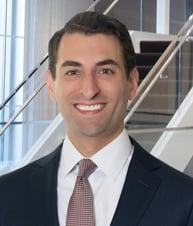On January 10, 2024, the U.S. Attorney’s Office for the Southern District of New York (SDNY) unveiled a new Whistleblower Pilot Program aimed at incentivizing “early voluntary self-disclosure of criminal conduct” that is otherwise unknown to enforcement authorities. The program, which applies to conduct in the corporate, financial, and investment spaces, is an unmistakable signal that corporate criminal enforcement remains a top priority for federal authorities and can be expected to increase as individuals respond to these newly promulgated incentives.
The Pilot Program
In contrast to the monetary incentives offered by the U.S. Securities and Exchange Commission, the SDNY’s Whistleblower Pilot Program offers protection against prosecution (in the form of a non-prosecution agreement) in cases in which six criteria are met:
- The reported criminal conduct has not previously been made public and is unknown to the SDNY.
- The individual’s disclosure is voluntary, i.e., it is not pursuant to a government request or other obligation to report.
- The individual “is prepared to cooperate fully” and can cooperate up – that is, provide “substantial assistance in the investigation and prosecution of one or more equally or more culpable persons.”
- The individual tells all – that is, truthfully and completely divulges all criminal conduct the individual is aware of and the individual has participated in.
- The individual is not a publicly elected or appointed official, a person of “major public interest,” or the CEO or CFO (or equivalent position) of a public or private company.
- The individual has no prior convictions for felonies or crimes of fraud or dishonesty and has not engaged in criminal conduct involving the use of force or violence, any sex offense involving fraud, force, or coercion of a minor, or any offense involving terrorism or implicating national security.
Even if these requirements are not satisfied, the SDNY nevertheless will consider entering into a non-prosecution agreement with the reporting individual if such an agreement is determined to be necessary and in the public interest, with reference to the following considerations, among others:
- The extent to which the reported criminal conduct previously had been made public or was known to the SDNY.
- Whether the reporting individual’s disclosure was voluntary.
- The extent of the potential cooperation by the reporting individual.
- The reporting individual’s thoroughness and truthfulness.
- The position occupied by the reporting individual.
- The adequacy of other (noncriminal) remedies for the individual’s conduct.
- The individual’s criminal history.
The Pilot Program in Context
The SDNY’s Whistleblower Pilot Program arrives against the backdrop of numerous recent additions and refinements to existing U.S. Department of Justice (DOJ) corporate criminal enforcement policies, including the announcement of a new Safe Harbor Policy that applies to mergers and acquisitions, revisions to the DOJ Criminal Division’s Corporate Enforcement Policy, and the rollout of similar policies across the DOJ, including in prominent components such as the U.S. Attorneys’ Offices and the National Security Division. While those policies aim to incentivize voluntary self-reporting by companies, the SDNY’s Whistleblower Pilot Program directs incentives to individuals, and in doing so represents a landmark effort that can be expected to lead to more investigative leads and thus corporate criminal investigations by federal prosecutors.
The SDNY’s Whistleblower Pilot Program is reminiscent of the DOJ Criminal Fraud Section’s FCPA Pilot Program, announced in 2016. Through that program, which was subsequently codified into DOJ policy in modified form as the Criminal Division’s Corporate Enforcement Policy, the DOJ’s Criminal Fraud Section laid out a system of incentives for companies potentially involved in criminal misconduct to voluntarily self-report, cooperate, and remediate. To this day, the principles first articulated in that program serve as the bedrock for DOJ corporate criminal enforcement, and they led to a significant increase in corporate criminal enforcement actions brought by the DOJ (largely through the Criminal Fraud Section) in the years that followed.
The pilot program’s language leaves no doubt about the types of entities the SDNY is targeting through this initiative: “public or private companies, exchanges, financial institutions, investment advisers, or investment funds.” Moreover, while the SDNY claims the pilot program will not apply to reported violations of the Foreign Corrupt Practices Act (presumably in recognition of the ongoing primacy of the DOJ’s Criminal Fraud Section in such matters), the SDNY’s expansive description of conduct in which it is interested, such as “fraud or corporate control failures or affecting market integrity,” leaves little doubt that it intends to take an aggressive approach under this program.
Key Takeaways
Coupled with the rollout of the U.S. Attorneys’ Offices Voluntary Self-Disclosure Policy, the SDNY’s Whistleblower Pilot Program arms the SDNY with an unrivaled pair of tools for identifying and opening investigations of corporate criminal misconduct. Just as the DOJ Criminal Division’s Corporate Enforcement Policy ultimately served as a template for DOJ-wide corporate criminal enforcement, so too might the approach of the SDNY’s Whistleblower Pilot Program later expand to other parts of the DOJ.
While the SDNY’s announcement of its Whistleblower Pilot Program prompts many considerations for companies and counsel, there are four to highlight:
- First, it will be even more important to ensure that compliance programs and internal controls are reviewed and recalibrated where necessary to ensure they are optimized to identify and respond to potential misconduct before a whistleblower drawn to the SDNY’s incentives decides to report the company.
- Second, even less time can be lost in responding to discovered misconduct, including in deciding whether to self-report. These new incentives substantially increase the likelihood of whistleblower disclosures to law enforcement, and companies will have to act even more quickly to obtain the benefits of making a voluntary self-disclosure.
- Third, the importance of adroit, focused, and efficient internal investigations is heightened because companies will only be able to make informed decisions about key issues with a sufficiently robust evidentiary record before them, and the time available to develop such a record will be even less.
- Fourth, companies should expect more enforcement scrutiny and activity overall as whistleblower reports lead to more investigations by the SDNY and others. SDNY’s announcement alone portends such increased enforcement activity, but if other components of the DOJ undertake similar initiatives, the upward trend will be yet more significant.


